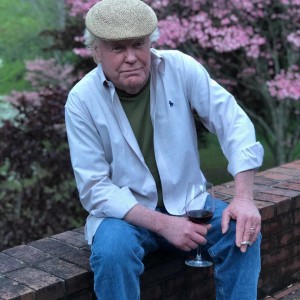There is a scene in the movie Darkest Hour that finds British Prime Minister Winston Churchill wandering the halls of No. 10 Downing Street asking aides, “Where is my Cicero?” It is the spring of 1940. Britain is surrounded by German U-boats; the British army is being pushed to the beaches of Dunkirk; France is falling. And here is Churchill (played by Gary Oldman, who won the Best Actor Oscar for his portrayal) turning the house upside down in search of his collected works of Cicero, who has been dead for almost 2,000 years, executed for his defense of the Roman republic as would-be dictators tried to kill it.
The scene is revealing in three ways: It shows Churchill to be absent-minded (he tends to lose things); he depends in an almost childlike manner on his aides and family to put things right (he never cooked a meal in his life, although he claimed to be able to boil an egg because, “I’ve seen it done.”); and his love of Classical history is so great he initiates a search during Britain’s darkest hour for his favorite Cicero.
The movie’s screen writers could have substituted the Roman senator Seneca for Cicero, or Plato, Aristotle, Marcus Aurelius, any number of Classical thinkers, leaders, and orators. Churchill studied them all, and had since his early 20s when he compiled a library and taught himself history.
His library grew over the decades, to include the works of Edmund Burke, Adam Smith, Edward Gibbon, the speeches of Pitt the Elder and Pitt the Younger, and the speeches of and biographies of U.S. presidents (Churchill was half American after all). Churchill read everything, but the firm foundation upon which all rested was Classical thought and Classical history, especially military history.
In time Churchill made himself into a Classical man. It’s not just that he knew Hannibal’s alpine route into Italy, or the history of the Roman conquests of Gaul and Britain, or the dates of sundry ancient wars and battles. He made those events part of who he was. He did not live in the past; the past lived in him. Many who knew Churchill noted this. Harry Hopkins, Franklin Roosevelt’s “fixer”, who met Churchill during the London Blitz, remarked on Churchill’s almost mystical relationship with the past: “He was involved not only in the battles of the current war, but of the whole past, from Cannae to Gallipoli.”
Churchill believed that history spoke, but only to those who choose to listen and know how to listen. An unsettling bit of logic lurks within that belief: history needs an audience in order to be history. History, if not passed along from one generation to the next, disappears. The same is true of any discipline; we learn from experience and instruction, but history, unlike math or biology or aerodynamics, forms our collective memory, our identity.
In a republic such as the United States history must be curated by every citizen participant, not simply the political and academic elites. What happens when it is not curated, when for nefarious reasons it is twisted, distorted, or ignored by the powerful? George Orwell supplied a stark and terrifying answer in his novel, 1984. Orwell wrote: “Who controls the past controls the future: who controls the present controls the past.”
Fortunately, we humans love stories, myths, legends; we love our memories, which are our histories—family, personal, local, and national. A child growing up in a small American town, as I did, or a large city, or a rural village will get a full dose of family history at home, including tales of family members who participated in events of historic significance. But the narrative arc of our nation’s story, from its pre-history to the present, is best supplied in schools, from elementary school on through to graduation. Why? To prepare citizens, citizens who can think critically, who won’t be gulled by untruths, who know their Constitutional rights, and who are prepared to evaluate and judge those who hold political power.
Today’s high school and college graduates can choose to enter any of hundreds of professions, most of which require some form of certification, training, licensing, or peer approval. The one thing they all will have in common is their citizenship, which for native-born Americans does not require any of the above vetting. I make the distinction of native-born status because immigrants to this country who wish to become citizens must take and pass a comprehensive test. The topic? American history.
We all know the old saying, “Those who do not learn from history are doomed to repeat it.” The other day I did a Twitter search for “Winston Churchill.” I do this regularly because the results are often hilarious, usually involving attributing to Churchill words he never spoke. My recent search yielded a tweet from someone with more than 140,000 Twitter followers. That’s a bigger reach than all but the largest American newspapers. This person was attempting to make a controversial political point, and prefaced his message with the “Those who do not learn history . . . .” cliché. And he attributed it to “Winston Churchill.” Churchill might have wished he came up with the quote, but it was George Santayana who did.
The irony of the tweet was that the pompous pundit who wrote it got his history wrong. More than one-hundred people replied to the tweet, most in agreement with the author. None noted his error. Social media is the new delivery system for information. When that information is incorrect history, and the audience lacks the critical thinking skills to unmask the untruths, widespread misinformation will result.
In a democracy, that spells trouble. The first several generations of American leaders understood this. The new American republic was an exceptional and fragile thing. Its intellectual roots went straight back to Classical thinking via Enlightenment thinking. Thomas Jefferson’s library—and Madison’s and Monroe’s and Adams’s—was constituted pretty much the same as Churchill’s. So was the library of the Massachusetts-born education reformer Horace Mann, fifty years later, and later still, Woodrow Wilson’s library, FDR’s, and Jack Kennedy’s.
Over the course of decades American public education became truly universal, and for the most part excellent. As the voting franchise expanded beyond white landowners to include working men, blacks, and finally women, public education expanded as well, with American history always at its core.
That history was often vile, often violent, and during the Civil War, catastrophic. It’s not always an uplifting story, but it’s a story that must be told and understood in order for this republic to survive. At about the time our Constitution was ratified, the French experiment in republicanism had collapsed into a bloody terror and was soon replaced by a military dictatorship which begat twenty years of European war. Thomas Jefferson gave his library to the university he founded in order that similar events never overtook America.
Horace Mann advocated for universal public education for the same reason. The library in your town’s high school is his legacy. But only if the books on the shelves are taken off the shelves, and read.
Another scene in Darkest Hour has Churchill having to abandon his car to ride the London Underground because the streets are clogged with terrified Londoners. It’s a much-discussed scene on social media. Churchill is made to seem unsure as to whether to continue the seemingly futile war with the overpowering Nazis, or to seek some sort of peace, which would surely reduce Britain to a vassal of Germany. During his subway trip Churchill learns that common Londoners expect him to fight on; they insist he do so. Thus, his courage restored, Churchill commences to write another inspired speech.
The scene is critical to understanding Churchill, but inaccurate on two counts. The first inaccuracy is minor, harmless, and can be chalked up to artistic license: Churchill rode the subway only once in his life, in 1926 (and got lost). Putting the Churchill character on the subway in 1940 might have worked for the movie but for the second and hugely significant error: Churchill had predicted this war for seven years, had prepared himself for this day, and never once during those years had he uttered one word of self-doubt regarding the need to fight Hitler to the end. Victory or death was his motto. It was he who inspired Britons, and the free world. The scene is simply bad, revisionist history.
Big deal, some might say. It’s just Hollywood being Hollywood. Yet if Darkest Hour was the only “historical” record of those terrible days of May 1940, the world would know a false Churchill, a weak Churchill. History is contingency: some things happen, some do not. The Churchill of this scene never existed. The study of history prepares us to discern fact from fiction.
Yet many of today’s high school students are not taught history, and therefore not tested in history as a requirement for graduation. These young people will go into the future not knowing the extent of their critical thinking skills, or lack thereof. Worse, if students are taught watered down history, and worse still, watered down history without context, they will take no civic skills whatsoever into the future.
That would be as clear and present a danger to the American republic as any foreign enemy or domestic anti-republican movement. Indeed, an America ignorant of its own history, its own foundation, would no longer rest on any foundation.
Churchill once told an audience: “History, with its flickering lamp stumbles along the trail of the past, trying to reconstruct its scenes, to revive its echoes, and kindle with pale gleams the passion of former days.” That is a cautionary phrase, perhaps one that should not be told to young history students on their first day of class, because Churchill meant that historical truths do not reveal themselves with the absolute clarity of mathematical or scientific truth. Note the words he used: “flickering”, “stumbles”, “pale gleams”. Science and math march forward with near certainty (inductive science) and dead certainty (deductive mathematics). But history is shadowy, rife with hard-to-fathom motives and passions. History is messy, mysterious. It challenges us. That is why Churchill loved it. He loved a challenge above all else.
Lifelong, Churchill did his bit for the cause of history. He made history; he wrote history; he loved to parse history. Today, our leaders must do their bit to ensure that history is taught in all public schools, that students are tested, and that today’s young citizens are prepared for the challenges of tomorrow’s world. The lamp of history, even with its pale gleams, can help light their way. The alternative is to carry no lamp at all.

By Paul Reid, co-author with William Manchester,
THE LAST LION: DEFENDER OF THE REALM, WINSTON SPENCER CHURCHILL—1940-1965
WAIT!
Do you appreciate the content of this website?
We are a nonprofit. That means that our work is made possible and our staff is paid by your contributions. We ask you to consider supporting this important work in an ongoing basis or, if you prefer, perhaps you will drop a few bucks in our “tip jar.”
All contributions are tax-deductible



